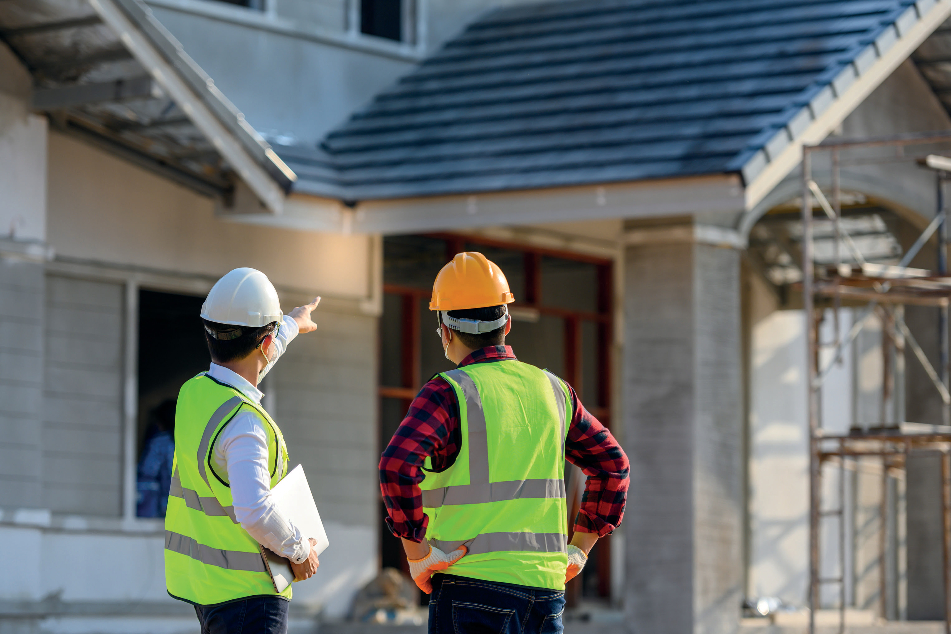Survey highlights concerns over quality of new build homes

A large proportion of people would not buy a newly built property due to concerns over quality, according to a new report from the Chartered Institute of Building (CIOB).
In its ‘New Build Housing: How regulation can improve the consumer journey’ report, the construction professional body explores public perceptions of new build homes along with levels of awareness of the standards housebuilders must adhere to and where to turn for help when they’re not met.
Its findings highlight how housebuilders need to do more to demonstrate quality to potential buyers when marketing new homes.
It also includes results from a consumer survey of 2,000 UK adults which found that 55% believe older homes are of better quality than new builds compared to 21% who think new builds are better. Almost a third of survey respondents (32%) chose to describe new build housing as ‘poor-quality’.
The report is accompanied by a guide for anyone considering buying a new build home which informs them of the protections they have as well as what they can do to identify issues in their home.
In the midst of a housing crisis, where the choice of homes can be limited, the CIOB said its important consumers understand instances of poor-quality new builds are less common and have an awareness of the measures in place to hold housebuilders to account if they do experience problems. They also recommend anyone buying a new build property enlists the services of a professional snagging company to identify defects, many of which aren’t visible to the untrained eye, which can then be flagged to the developer for resolution.
David Parry, CIOB’s parliamentary & public affairs officer and author of the report, sayid although minor snagging with new builds is commonplace, the overall quality of new builds has improved in recent years.
“Our research shows the majority view of new build homes is that they’re of low quality and this puts many people off from considering buying one,” said Mr Parry.
“However, the reality is that quality has improved, and new builds are for example generally much more energy efficient than older homes as must adhere to more stringent regulations such as the Future Homes Standard, so have lots of positives.
“Our report is designed to provide consumers with reassurance that the majority of housebuilders are signed up to a very clearly defined and high set of standards while, for those who do encounter issues, there is an ombudsman to intervene if a housebuilder fails to meet those standards and doesn’t resolve problems adequately.”
CIOB’s survey also shows there is a lack of trust in housebuilders to build new homes to a high standard with around 33% of respondents indicating they have a ‘low level of trust’ and 63% saying they are very or somewhat concerned about potential issues with new build housing. CIOB said housebuilders have a leading role to play in rebuilding consumer confidence by better promoting the standards they are committed to and providing buyers with clear information on how they are regulated.
The New Homes Quality Board (NHQB) is an independent body formed by the UK Government in 2021 to ensure consistently high standards of quality and service are met by housebuilders. Currently registration with the NHQB is not mandatory, although around 80% are registered and the number is increasing all the time. CIOB is calling on the government to undertake a review of the NHQB to understand whether registration should now become mandatory for all housebuilders.
In addition, the New Homes Ombudsman (NHO) can investigate situations where a customer is not satisfied with the resolution set out by their housebuilder on a matter of quality, information or customer service.
Mr Parry added: “According to our survey only 13% of people would go to the New Homes Quality Board if they had a problem with a new build home. For those who have purchased one in the last year, that figure went up a fraction to 18% so clearly awareness of the body is very low despite most buyers being given information about them during the purchase process. A wider consumer awareness campaign would be a sensible way to increase awareness and give prospective buyers the confidence to consider a newly built property.”

















